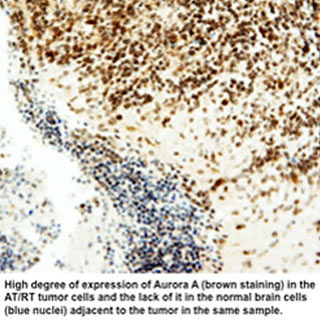
This gene is assumed to be expressed at higher-than-normal levels in many cancers. Its expression is presumably linked with poor prognosis. Mutations within a tumor suppressor gene named INI1/hSNF5 can reportedly result in rhabdoid tumors. During the research, it was observed that in rhabdoid tumors, loss of the tumor suppressor gene INI1/hSNF5 may change Aurora A’s expression that is necessary for tumor growth.
Experiments were conducted on rhabdoid tumors and tumor cell lines. Ganjam Kalpana, Ph.D., professor of genetics and of microbiology and immunology and colleagues noted that Aurora A is highly expressed in both human and mouse rhabdoid tumors. Loss of the tumor suppresser INI1/hSNF5 from rhabdoid tumor cells can allegedly lead to the ‘depression’ of Aurora A. Knocking down Aurora A’s expression in rhabdoid tumor cells can apparently inhibit the growth of those cells.
The research was published in the April 26 online issue of Cancer Research.
